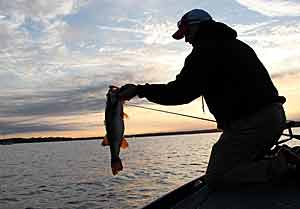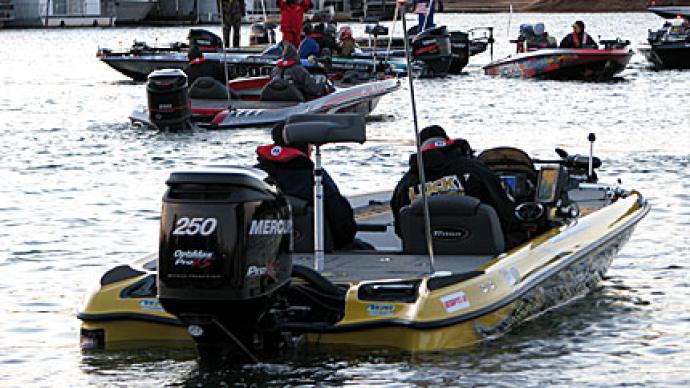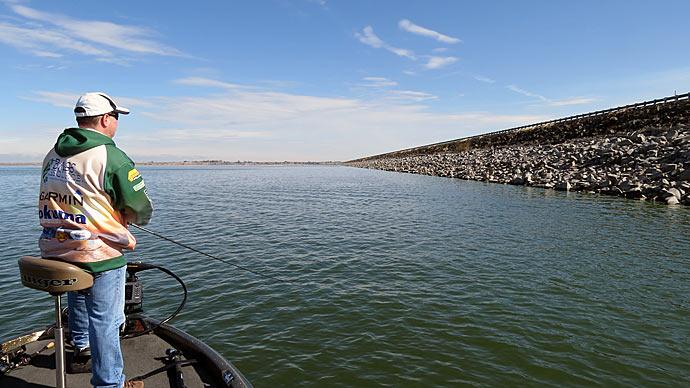
I’ve often been told that strategies professional anglers use to win major bass tournaments don’t apply to weekend fun fishing.
Phooey!
There are, of course, a few differences, but essentially, we’re all trying to find and catch fish in a limited amount of time and under ever-changing conditions and circumstances.
Have you ever gone fishing only to realize afterward you squandered fishing time and made poor decisions that kept you from being more successful?
That’s what happened to me in the 1988 Bassmaster Classic, and really, it was those “learning mistakes” that helped me the title the following year, both events being held on Virginia’s James River.
As I headed for the 1988 weigh-in at Richmond, I felt like driving my boat over a waterfall; there is no worse feeling than losing in the Classic. I had executed poorly by wasting time running between long-distance fishing spots.
That’s a mistake all professional and amateur anglers make periodically. We tend to expect fishing to be better elsewhere when, actually, we’d be wise to concentrate and perform on one area. That’s what I did to win. I focused on three “bassy-looking” creeks within a few minutes of each other and built my plan around them. If one didn’t produce, I was five minutes from another.
You, too, can make good use of a weekend by mapping a similar game plan. Pick an area offering many options and forget the rest of the lake; you’ll likely be a better and more thorough angler.
When the first practice day came around in the ’89 Classic, I didn’t go near those creeks. I was committed to fishing them on tournament day, so I fished spots I found in ’88. When I started catching fish, however, I began questioning my game plan for the creeks. Fortunately, I decided to stick with my schedule. I did, and boy, am I glad.
One of the areas I was counting on didn’t produce, but there was so much productive water nearby I could stay in contention throughout the tournament, which kept me confident and on top of my game.
Even so, heading into the final day, Jim Bitter of Florida built a comfortable lead over the rest of the field. I was 8 pounds down; to catch him, he had to have some tough luck, and I had to catch a big stringer - something the James River isn’t known for in August.
Generally, I didn’t have much trouble falling asleep at tournaments, especially when I had a game plan. But on that final night, I laid awake until 1 a.m., questioning my strategy. It was tempting to swing for the fence – make the long run to water with a big-bass reputation. That’s what I did in 1988, and I struck out. Finally, I decided to stick to my plan.
The next morning, I found other fishermen in one of my creeks, which didn’t discourage me. I wasn’t about to let fishing pressure shake my confidence.
I had a little trick that might give me an edge. Most entrants were fishing fallen logs, a good pattern, indeed. But I had found the quality bass were around the knees of overhanging, live cypress trees when the water was moving with the tide. Once the water stopped moving, the bass related to logs, but that lasted only about an hour.
Also, the bass would take a spinnerbait in one of two ways: waking the surface or slow-rolling along the bottom. Anything in between didn’t work.
Again, concentration and execution helped me uncover those subtle but important factors.
I caught a good limit quickly and began to cull smaller fish. As my weight increased to more than 14 pounds, I realized I could win. I needed another good fish and knew where to find it.
The day before, I had a 3 ½ pound fish hooked on a spinnerbait next to a tree in mid-creek. If I could catch it again, I’d have a better chance to win. I lined up the boat, flipping a crawworm perfectly to the tree. Wham! The same fish struck, swam to the boat . . . and came off again.
Two hours later, I went back to the same tree. Since I’d lost the fish on a spinnerbait and a worm, this time, I’d try a crankbait. Sure enough, the bass hit and was hooked well, I thought. Wrong! It made a run under the boat and came loose.
A sure bet it cost me the Classic. After losing the same fish three times, I figured it wasn’t meant to be. As it turned out, though, Jim Bitter had a bad day, and I had two ounces to spare.
Had I not won, naturally, I would have been disappointed. Yet, unlike the year before, I would have gone home knowing I had fished as well as possible.
And regardless of whether you are going home from the Bassmaster Classic or a day on the local lake, that’s an excellent feeling to have.
For more articles, quick tips, and much more, visit HankParker.com.



